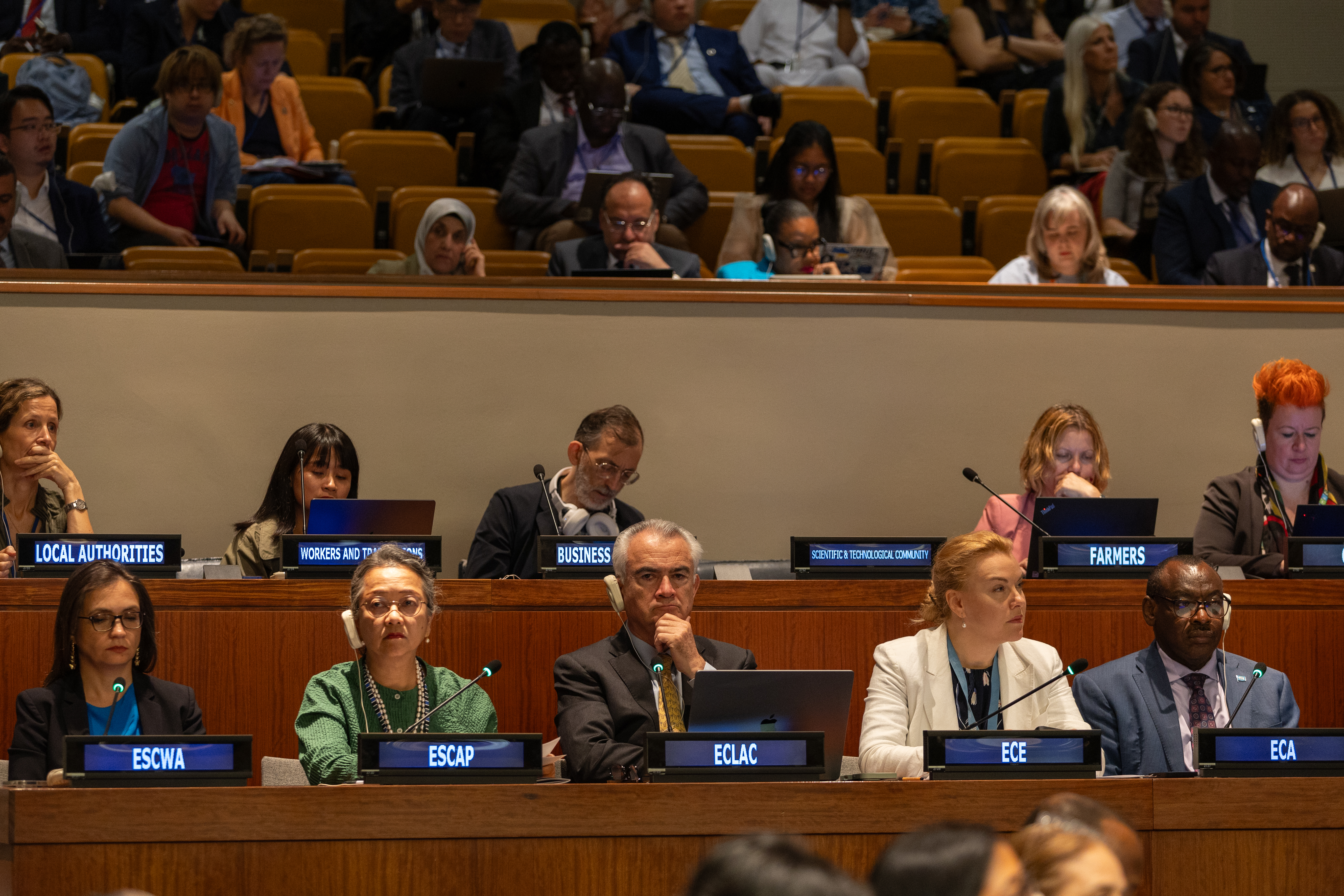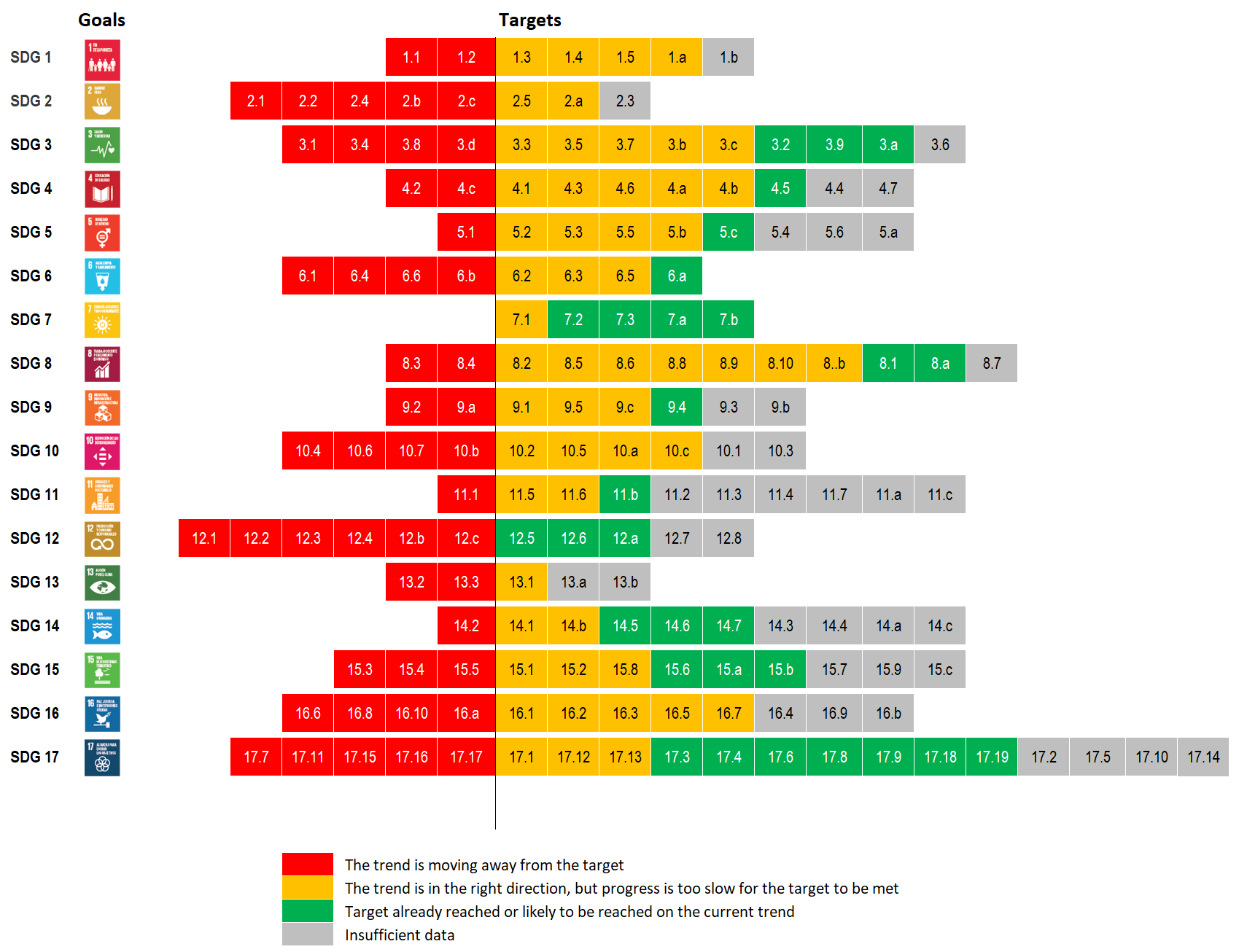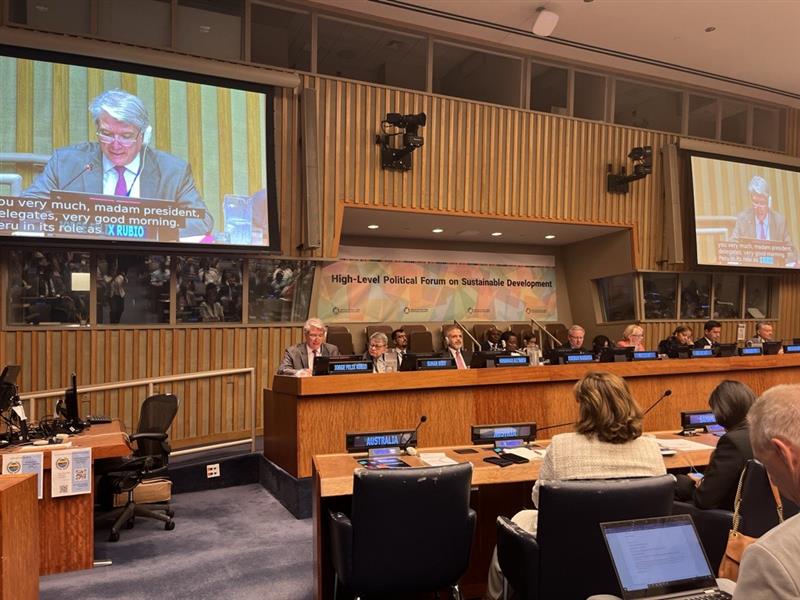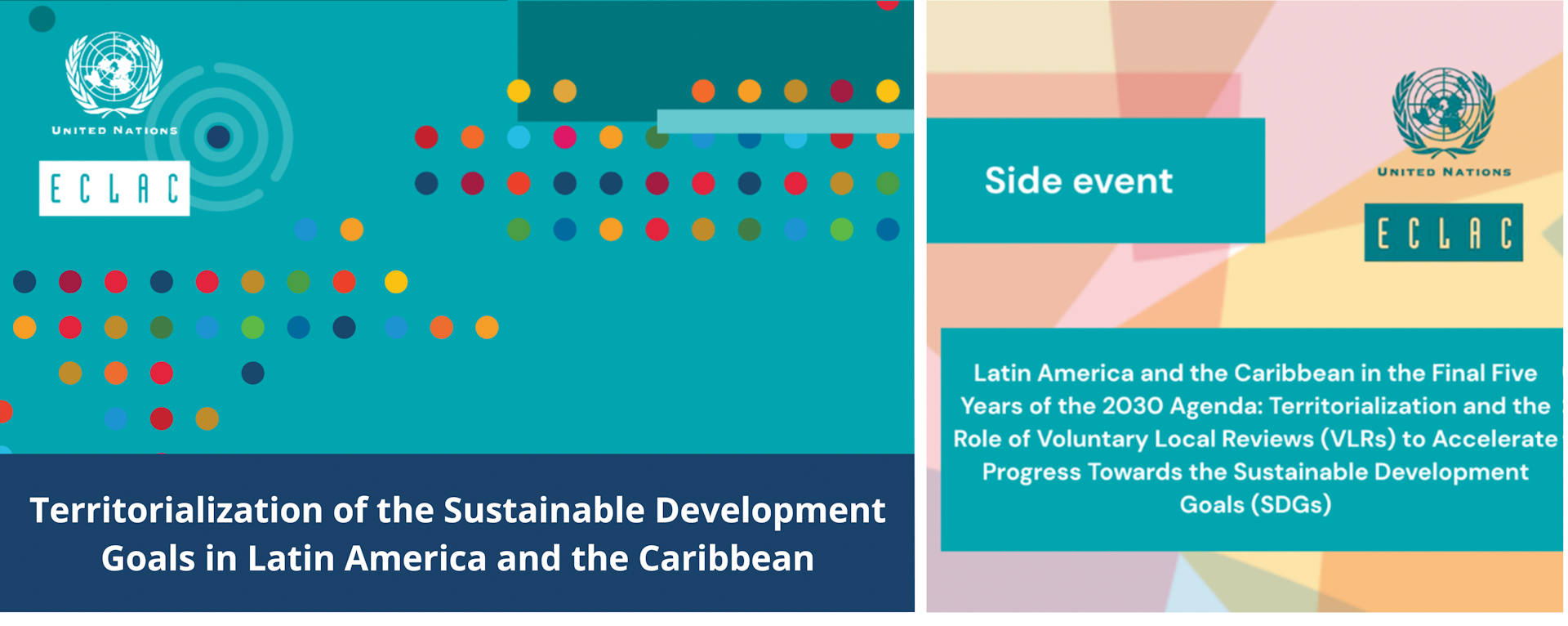With just five years left to reach the Sustainable Development Goals, we need to shift into overdrive
Work area(s)

The 2030 Agenda for Sustainable Development has improved millions of lives in the past decade, but progress is not sufficient to achieve its 17 Global Goals by 2030. Only 35 per cent of SDG targets are on track or show moderate progress at the global level. Nearly half are moving too slow or making only marginal progress, while 18 per cent have even regressed.
In the region of Latin America and the Caribbean, the performance is slightly better than the global average, but still far away from where we should be ten years into the implementation of the 2030 Agenda. As can be observed in the graphic below, 64% of the 132 targets assessed exhibit positive trends, but just 23% are likely to be achieved by 2030. The remaining 41% require accelerated progress to meet the 2030 deadline. Meanwhile, 36% of the targets are stalled or moving in the wrong direction in comparison to 2015 values.

Latin America and the Caribbean: SDG targets by likelihood of achievement 2030
Results of the trend projections for 2030 show mixed regional performance
Progress on the targets of each SDG is characteristically heterogeneous in the region. The SDGs that are most likely to have at least 50% of their targets met by 2030 are Goal 7 (Affordable and clean energy) and Goal 14 (Life below water).
The SDGs that are least likely to meet that 50% threshold are Goal 2 (Zero hunger), Goal 6 (Clean water and sanitation), Goal 10 (Reduced inequalities), Goal 12 (Responsible consumption and production) and Goal 13 (Climate action).
For Goal 1 (No poverty), Goal 4 (Quality education), Goal 5 (Gender equality), Goal 8 (Decent work and economic growth), Goal 9 (Industry, innovation and infrastructure), Goal 11 (Sustainable cities and communities), Goal 16 (Peace, justice and strong institutions) and Goal 17 (Partnerships for the Goals), the majority of the targets are progressing, but many are doing so at an insufficient pace for achievement by 2030. It is not possible to discern a clear positive or negative trend for the targets of Goal 3 (Good health and well-being) and Goal 15 (Life on land).
The High-level Political Forum on Sustainable Development (HLPF) 2025
The High-level Political Forum on Sustainable Development (HLPF) was convened under the auspices of the Economic and Social Council (ECOSOC) from 14 to 24 July 2025 under the theme “Advancing sustainable, inclusive, science- and evidence-based solutions for the 2030 Agenda for Sustainable Development and its Sustainable Development Goals for leaving no one behind”.
The high-level event conducted in-depth reviews of: SDG 3. Ensure healthy lives and promote well-being for all, at all ages; SDG 5. Achieve gender equality and empower all women and girls; SDG 8. Promote sustained, inclusive and sustainable economic growth, full and productive employment and decent work for all; SDG 14. Conserve and sustainably use the oceans, seas and marine resources for sustainable development; and SDG 17. Strengthen the means of implementation and revitalize the Global Partnership for Sustainable Development.
At the opening of the HLPF, Bob Rae, President of ECOSOC and Permanent Representative of Canada to the United Nations, stressed that “the SDGs are not optional ideals but essential commitments,” and even more so at this time of crisis. He urged that we need to reaffirm the UN’s relevance through results, by showing that multilateralism delivers real, tangible benefits for people at every level of society.
José Manuel Salazar-Xirinachs, ECLAC’s Executive Secretary, actively participated in several of the global forum’s plenary sessions and side events, where he shared his vision for moving towards a more productive, inclusive and sustainable development model by overcoming development traps and strengthening the TOPP capabilities of institutions (technical, operational, political and prospective or foresight capabilities). ECLAC further launched a virtual capacity course on the localization of the SDGs directed at subnational and local authorities in an official HLPF side event.
The 2025 HLPF brought together over 100 ministerial and high-level representatives of governments, as well as a wide range of expertise and stakeholders, including heads of UN entities, academics and other experts, and over 800 representatives of major groups and other stakeholders and non-government organizations with ECOSOC status, including 300 youth representatives.
Some 187 side events, 13 VNR Labs, 12 Special events and 15 exhibitions were organized at the sidelines of the high-level event. As the highlight of the conference, 38 countries presented Voluntary National Reviews (VNRs) to measure progress of SDG implementation, including six countries from Latin America and the Caribbean, namely the Dominican Republic, El Salvador, Guatemala, Saint Lucia and Suriname. These reviews provided valuable insights into best practices, lessons learned, and obstacles encountered in implementing the 2030 Agenda at the country level.

As a highlight of this year’s programme, the five UN Regional Commissions organized the annual plenary session entitled “Regional Perspectives on SDG Implementation” to showcase regional challenges, innovative pathways and opportunities for accelerating progress towards the SDGs and present transformative policies and actions for the remaining five years until the established deadline for the SDGs in 2030. The session also discussed the recommendations from the Regional Forums on Sustainable Development and provided a particular focus on innovative solutions for financing for development. It also featured a joined brochure with key messages from the five regions and a video which captured the voices of diverse governments and stakeholders around the world. Ambassador Paula Narváez, Permanent Representative of Chile to the UN, spoke on behalf of 19 Latin American and Caribbean countries and reaffirmed the indispensable role of the Regional Commissions as engines for SDG implementation. She stressed that ECLAC has been particularly instrumental in promoting comprehensive approaches that address structural development gaps, encourage inclusive economic transformation, and foster regional collaboration in critical areas.
With only five years left to fulfill the vision of the 2030 Agenda, its achievement requires an unprecedented level of collective action. International cooperation and greater commitment from all relevant actors must be urgently scaled up to find lasting solutions. ECLAC's Community of Practice on Voluntary National Reviews (VNRs) for Latin American and Caribbean (LAC) countries as well as the upcoming ninth meeting of the Forum of the Countries of Latin America and the Caribbean on Sustainable Development to be held at the ECLAC’s Headquarters in Santiago de Chile from 13-17 April 2026 provide an opportunity to promote regional cooperation to accelerate progress towards the SDGs. Or as António Guterres, Secretary-General of the United Nations, phrased it in the foreword of the Global Sustainable Development Report (GSDR) 2025: “With just five years to reach the SDGs, we need to shift into overdrive.”
Related content

ECLAC Launches Virtual Course and Highlights Local Progress at Side Event of the 2025 High-Level Political Forum
The event brought together experiences from Argentina, Brazil, Mexico, and Saint Kitts and Nevis, and marked the global launch of the self-paced training on Voluntary Local Reviews.
Country(ies)
- Latin America and the Caribbean